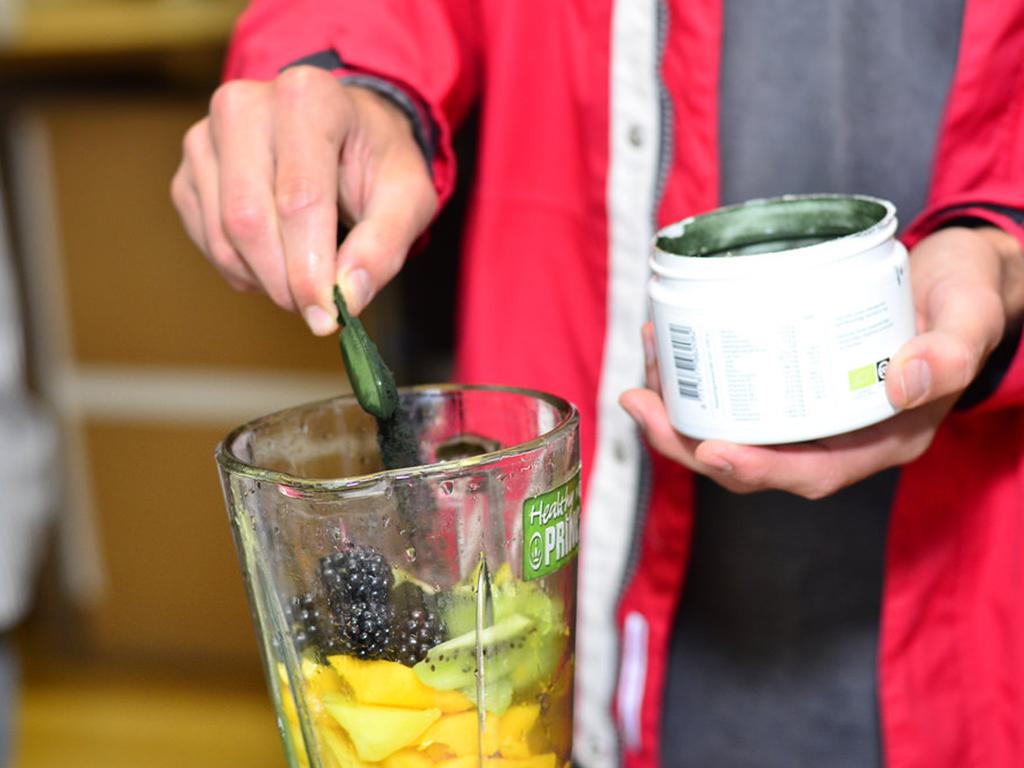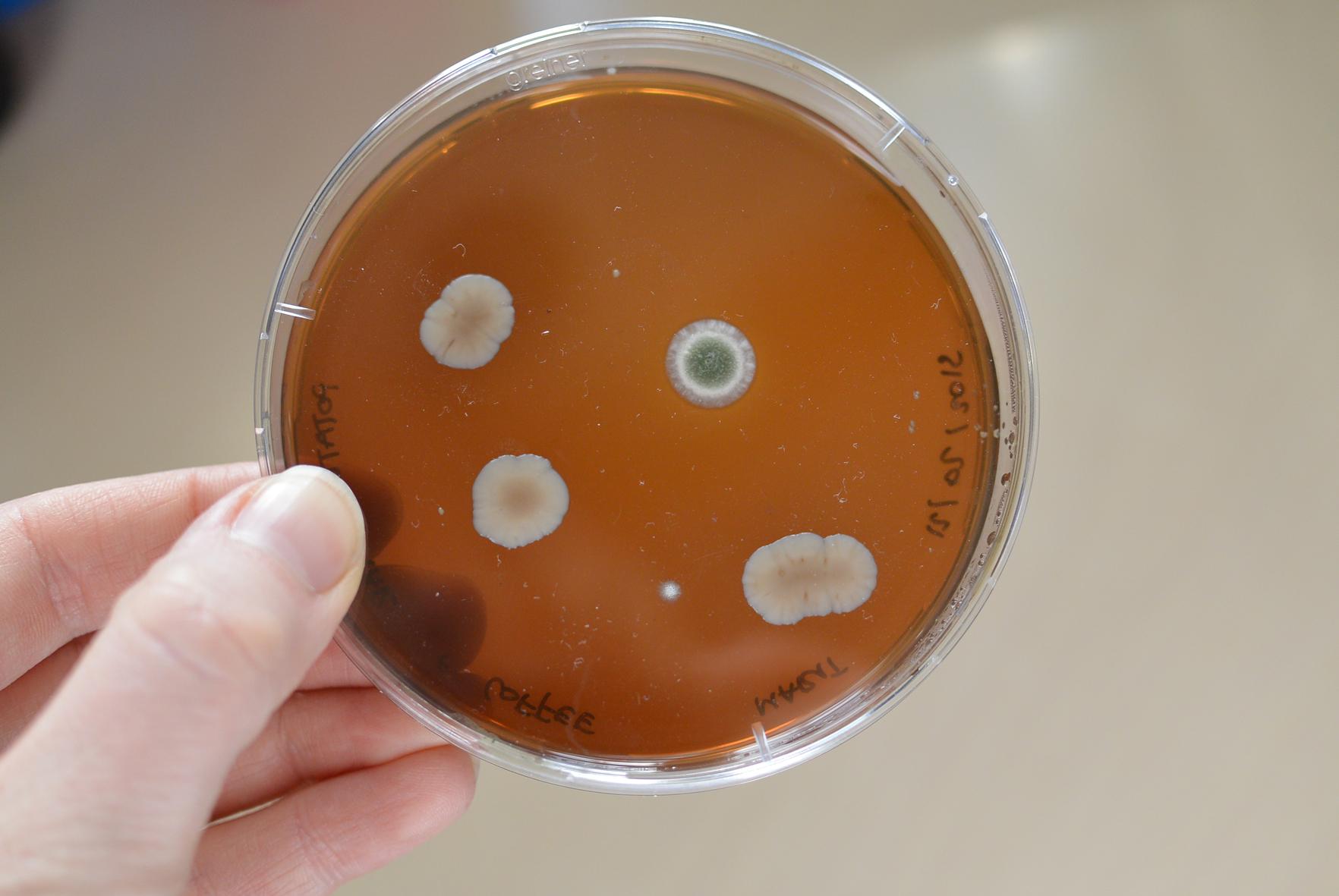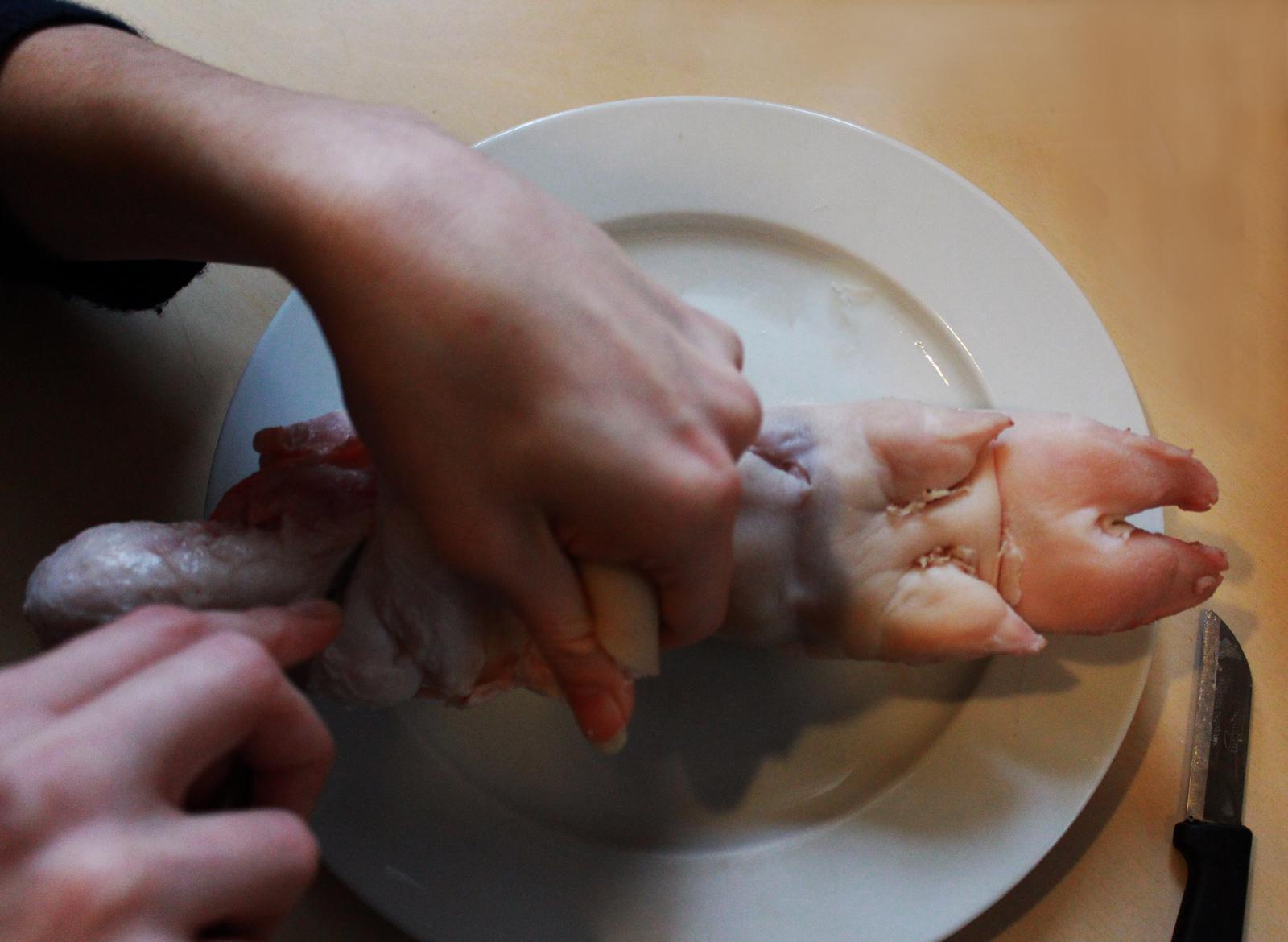With the global population possibly growing towards 10 billion people in 2040, finding a solution for the world's food problem is becoming increasingly more urgent. What if you could provide your own proteins, by growing algae at home?
During the Do-It-Together Bio workshop we worked with Spirulina. This kind of algae is considered to be a 'super food' - containing high levels of proteins and vitamins. I wanted to take a close look at them, so I went to work with an aquarium to grow some of my own. I did this before, just by brewing some ditchwater in a cola bottle with lots of light and air. With Spirulina the trick is to raise the pH value to above 10. Normally, algae wil not survive this pH level, but Spirulina does.
Besides the aquarium you need a heating element, a thermometer and a pump (in this case used for carbondioxide, not oxygen). Do you want to know more about growing algae? Have a look at this website.
Just like with cooking, it all comes down to having the right recipe. Not so easy to find in this case, but this worked fine for me:
- 16 gr / L sodium bicarbonate
- 0,5 gr / L potassium nitrate
- 0,01 gr / L calcium phosphate
- 0,01 gr / L potassium sulphate
- 0,01 gr / L magnesium sulphate
- and a few drops of an iron solution from the aquarium shop
Tim van Koolwijk contributed heavily in developing this and with the workshop. He bundles all his knowledge at the company Spireaux.
Spirulina is mostly eaten in a smoothy, because it does not taste so well.... adding some fruit does help! I find it a lot more attractive than that other promising meat substitute: insects. And in contrast with quinoa, Spirulina can be grown at your window frame.


